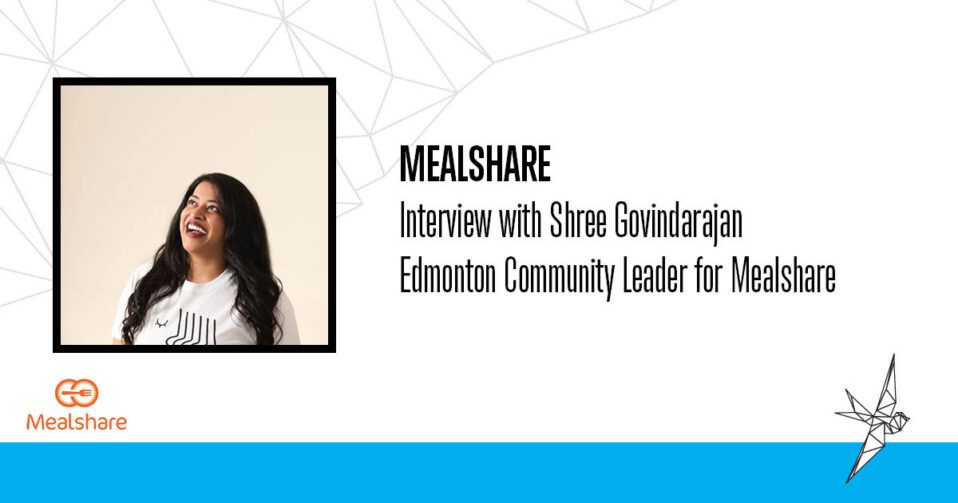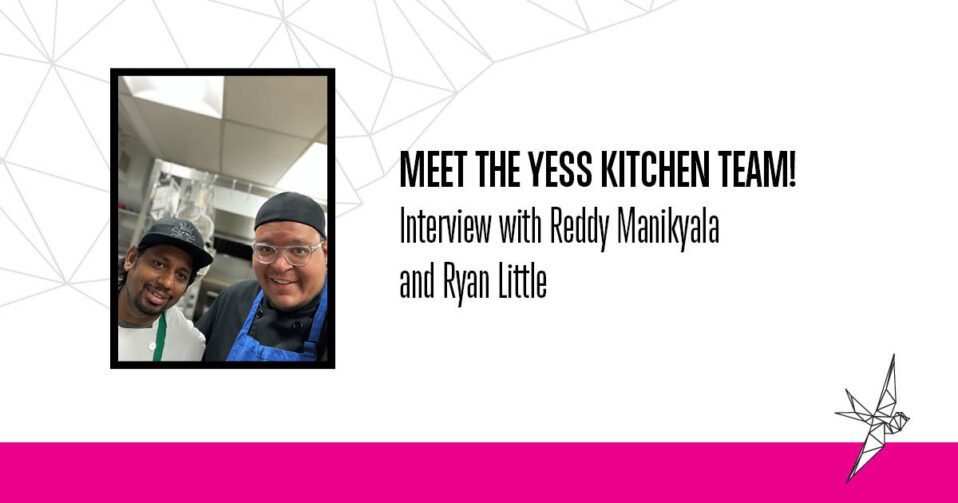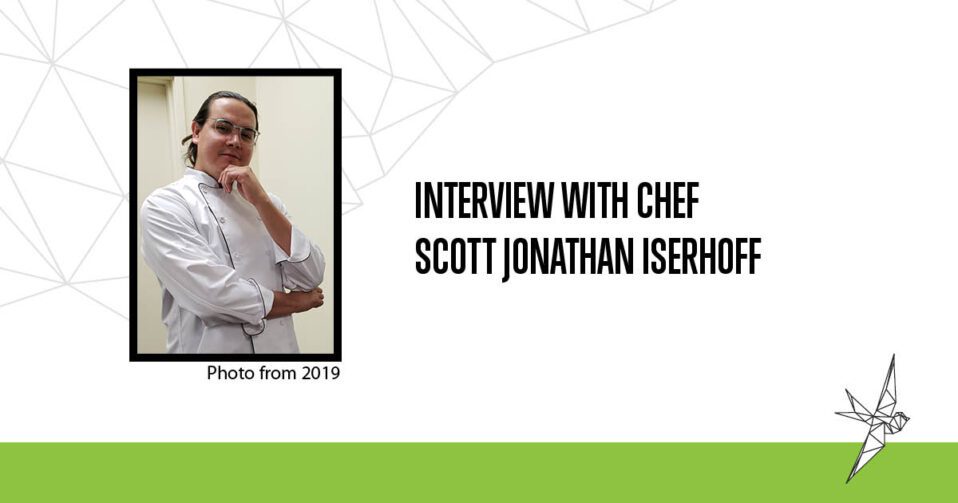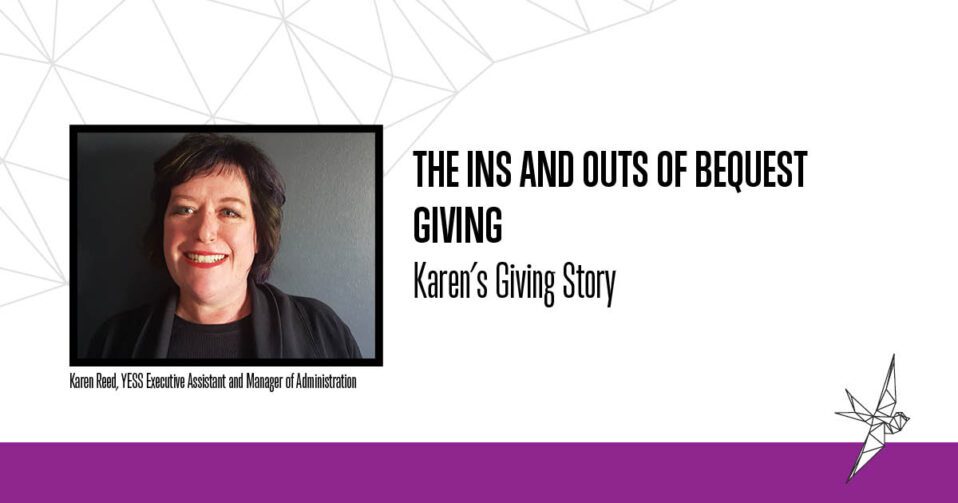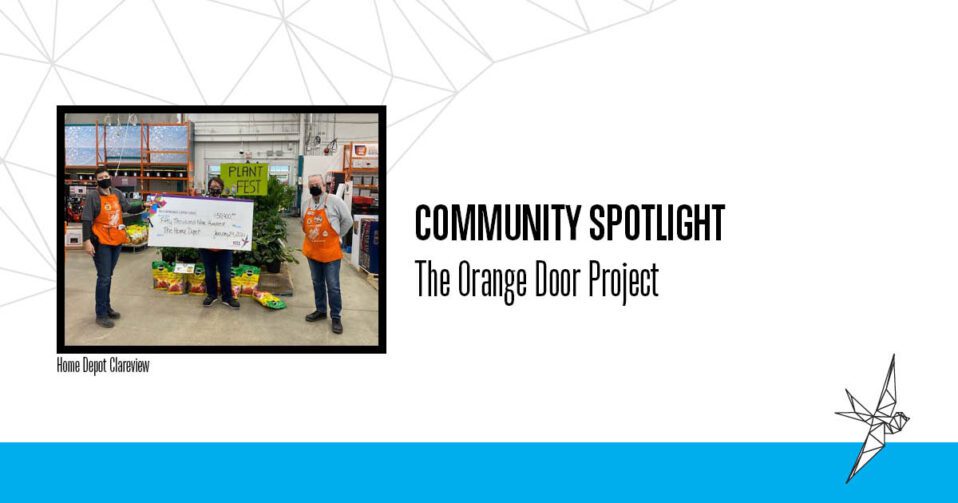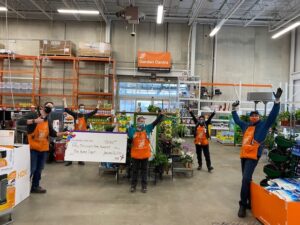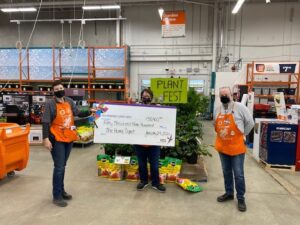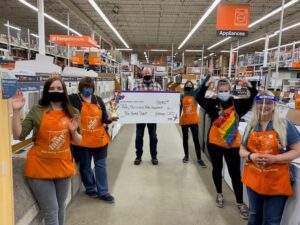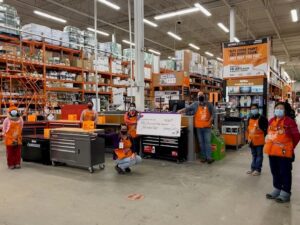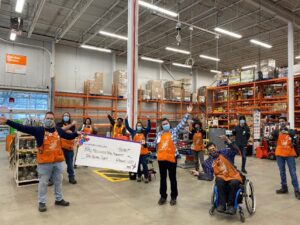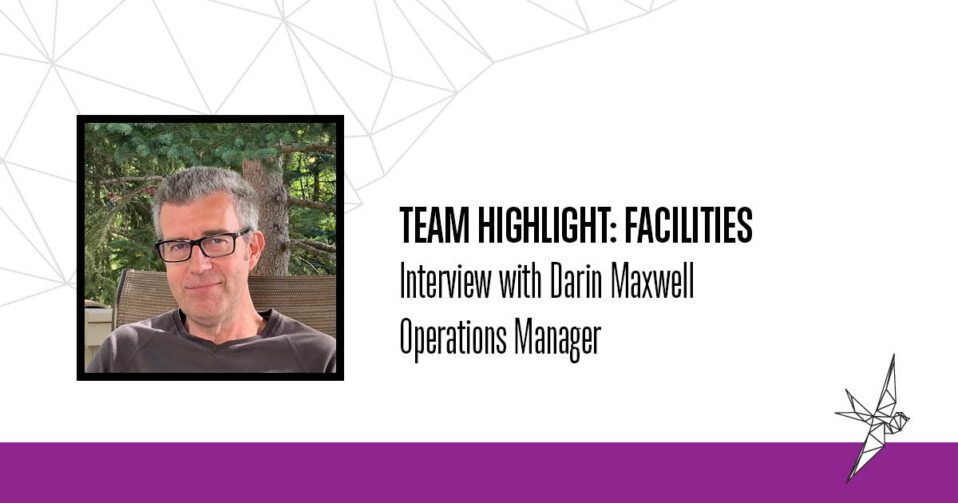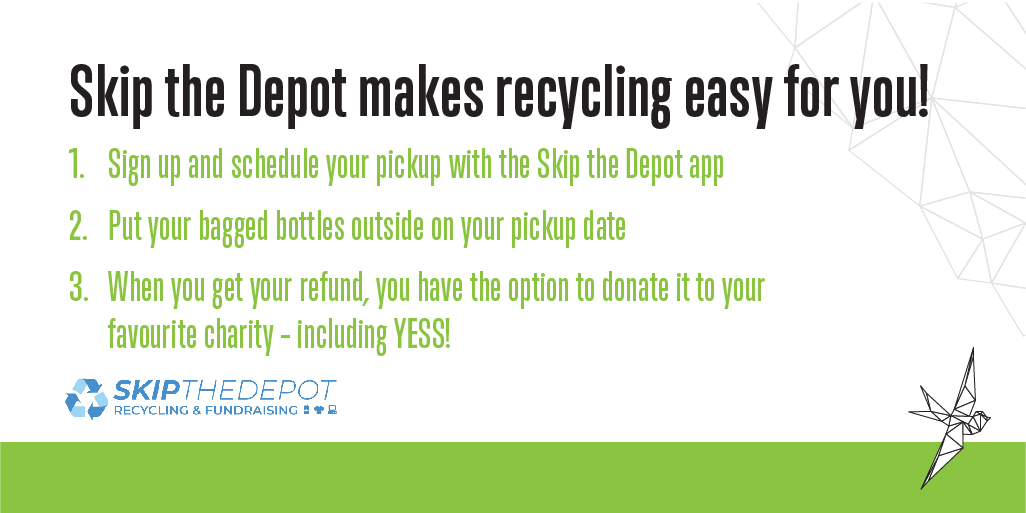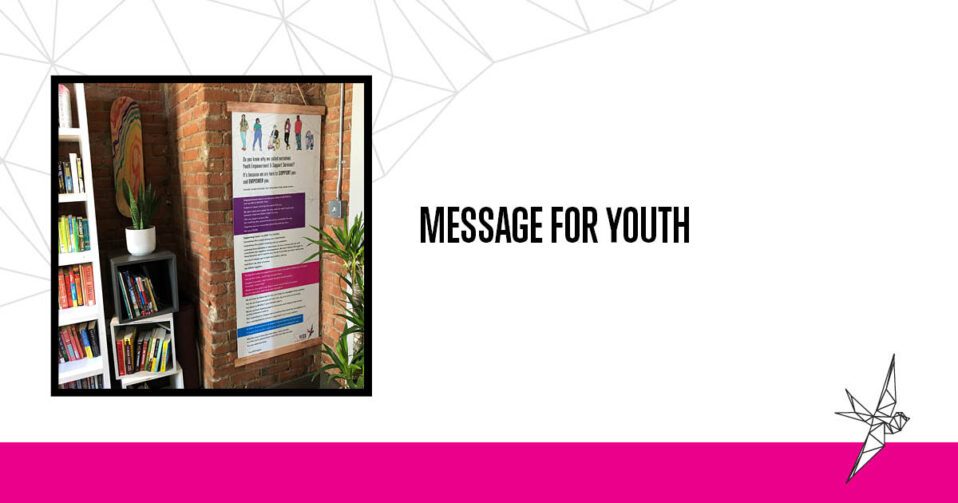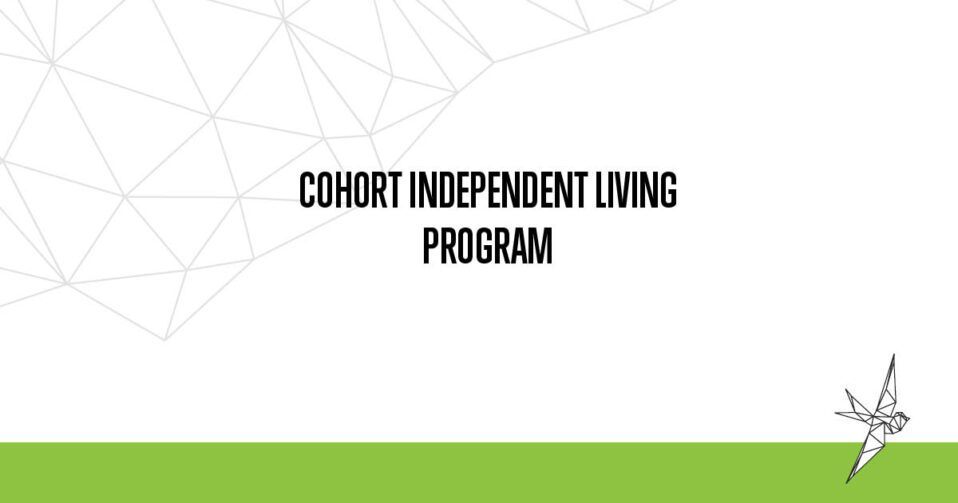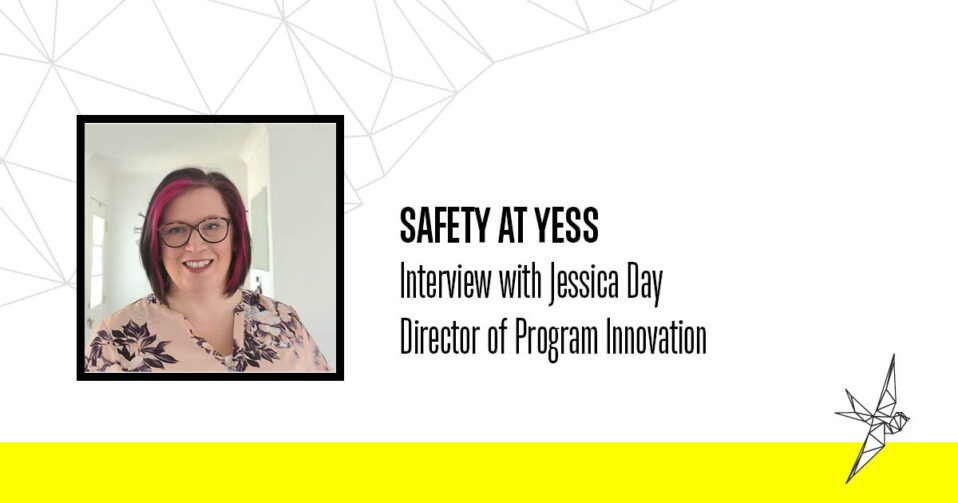Since the beginning of the pandemic, there has been a huge importance of safety in YESS programs, following health and safety guidelines that created physical safety in an unprecedented time. Of course, physical safety has always been a priority of YESS programs as we provide access to basic needs like shelter, food, clothing, etc. We also have an aspect of providing safety that is less immediately, but no less important. We also have an aspect of providing safety that is just as immediate and important as physical safety: we have to create a sense of “felt safety” for the youth, so they trust us to help them with their trauma. This critical work comes from a focus on building healthy relationships and trust, that they will feel safe in our programs.
Director of Program Innovation, Jessica Day, answers some questions about both kinds of safety, how important they have been in the pandemic world, and how we evolve practices that continue to meet youth where they are at.
Tell us about the current day-to-day realities of YESS programs, a year into the pandemic?
We are open and we are available, and we are adapting to meet the youth needs. That’s been the motto of YESS since the pandemic started and we continue to be predictable and adaptable for the youth and with the youth as it continues on. Every day, in every capacity, our youth are mandated to wear masks, socially distance, and comply with regulations. Their world is smaller now because all their safe spaces (not just agencies but homes, families, friends, buildings) are all closed to them and they have no access to any sort of reprieve. Groups and activities that helped motivate them are slowly coming, but the constantly changing AHS restrictions are creating instability for the youth. At YESS we are watching and listening to the youth as they adapt to their new world and we are trying our best to respond to their new needs. A pandemic does not slow down the need for youth to be supported as they transition through trauma—it increases! Family violence and domestic disruptions are a real and intense side-effect of the pandemic world and we have new youth who cannot “hide” at school or in day programs or avoid home life at the rec center or a friend’s house. So at YESS, we immediately responded by opening our doors and allowing youth space to exist and spend their day in safety. A year later, we are now starting to adapt our programs to focus on the life skills, self awareness, and community integration work we had in place before the pandemic. Why? Because our youth do not want to sit still. They are tired and drained and mentally unwell in this pandemic and, sadly, many of them are hitting rock bottom as they simply exist. Youth need hope and purpose and possibility in order to keep moving forward and this disappeared as the pandemic grew. We are now opening up the Armoury Resource Centre to focus on accessing community resources and building up trust with the community supports. We opened our sleep shelter to be a 24/7 sleep shelter where youth can come and go as they need sleep, and not be restricted to sleeping within set hours. And we are opening up transitional homes that focus on introducing youth to case planning, goal setting, and creating environments of growth.
What particular practices are used in YESS programs to create a safe environment for youth?
What set us apart in the pandemic was the immediate and non-negotiable approach for staff and youth to comply with AHS protocols. We were open and honest and consistent with our approach and it worked. Having already spent many years focusing on building trust and relationships, we were able to receive compliance from the youth with very little struggle. The youth understood, very quickly, that there were very few places left open to them with the pandemic closures and our overnight shelter and our daytime resource center adapted immediately to meet their needs. We opened to cover 24 hours between the two spaces, and this allowed the youth a reliable and predictable space to exist. Now, we are focusing on adjusting our programs again to help our youth have more than a place to exist, but a place to build hope and possibility again. We are showing them that it is possible to believe they can thrive, to have hope they can get out of this existence, and create space for them to have self-awareness and confidence. Whether is it space to complete school online, space to build up independent life skills, or space to practice their culture and spirituality, we have morphed back into the programming that our youth are asking for. These practices were in place before the pandemic but now, the youth are more motivated. And the need is even greater.
We now have a 24/7 sleep space at the Nexus Overnight Shelter that is open to the youth, whenever they need it, as often as they need it. The drop-in approach to sleep has given our youth the safe space to sleep when they need it most, not when it’s expected of them. Some kids need to sleep for 2-3 days to catch up with the amount of sleep they are missing. Youth are trying to survive and stay alive to stay safe, and we are gently telling them it’s okay to sleep and rest. And it’s working because when the youth get the sleep they need, they are more motivated to achieve their goals.
We also opened up a Cohort Living space that gives youth an individual room and an individual cohort within which they can unmask and breathe. Youth need social interaction and peer support, as much as they need resources, and this cohort space allows them to reconnect with similar youth and have those home-like interactions that were missing in the restrictions. Now they can unmask to watch TV, or cook together, or complete work together, just as our community does.
What is the difference between safety and “felt safety”?
Safety focuses on being protected from harm or hazards. To be safe, we implement processes and protocols and tools that will prevent accidents, exposures, or harmful situations. Every home and organization and workplace has safety protocols to help avoid injury or various levels of risk—fire extinguishers, eye washing stations, first aid kits, drills or alarms, etc. These are necessary to help individuals feel safe and protected from potential risks and allows them the capacity to do their work or live feeling protected.
“Felt safety” is subjective: it focuses on creating an environment where an individual feels safe, but is not necessarily physically safe. For our youth, who are in survival mode, where they “feel safe” is not necessarily a safe and appropriate environment. They are lacking trust that adults will “take care of them” or “keep them safe and protected” and yet, instinctively and developmentally, they need to be taken care of. When a youth is traumatized, what feels safe changes for them. “Felt safety” is built on emotional and psychological trust. When we are feeling unsafe, we are scared and anxious and fearful and our bodies are in a tense state of survival. For those who are on healthy developmental trajectories, we can recover and adapt quickly to feeling unsafe and manipulate our bodies and spaces to align with our sense of trust and our well-being. Our youth, who are traumatized and not on a healthy trajectory, adapt in unhealthy ways and manipulate environments and their bodies to align with their broken sense of trust and well-being.
To truly create a sense of “felt safety” for youth, staff, or community members, we have to follow our trauma-informed care framework. We have to be predictable, consistent, and transparent. Our policies, protocols, interactions, and expectations have to be non-judgemental and tailored to what each individual youth is feeling or needing. “Felt safety” is NOT universal: it is unique to each person. Therefore, we have to be open and honest and empathetic to the youth and their individual experiences. As “felt safety” is subjectively emotional and psychological, we have to give space and compassion to each youth as they define, redefine, and comprehend their own safety.
If we want to truly walk beside the youth as they transition through their trauma, we have to establish safety on both levels. They have to learn and trust that we will keep them safe from harm and risks, even if self-induced. They have to learn and trust that we empathize with their survival mode and mental health needs, even if dark and heavy. They have to learn and trust that we will be open and available for them when they need us, whether for sleep, mental health support, food, basic needs, independence, or pandemic reprieve.
Trauma broke their trust and took away their safety. We have to work to help them build it back.
What is one thing you wish the community knew about the work being done at YESS?
I wish the community knew how scary and hard this pandemic has been for our youth. They have had no reprieve from the mandated restrictions, no safe space to take off the mask and reset themselves. Their world has closed in on them; jobs are gone, school is gone, families are not stable, agencies are closing down or restricting services, the community is in lockdown, and they are not safe or really welcome in the adult homelessness sector. They are scrambling to find hope and purpose in a world that is already difficult and full of barriers.
I wish the community understood that YESS is working tirelessly to support the youth and adapt our programs, but we are not alone. Collaboration is no longer an idea that may work to help reduce barriers, but a necessity to surviving this pandemic. We are working with other agencies to align our available services and create a network of support and open the world of hope, trust, and potential back up for our youth.
We need the community to remember that they are a really important part of the youth’s success. I know the pandemic has made it hard. We are restricted into our individual bubbles and our scope of empathy is focused on our own families and our own circumstances. Now, more than ever, we need to remember that we ARE a community. That we need each other and the only way to survive the pandemic and restore trust and faith in our future is to collaborate, connect, and find ways to be compassionate as a whole. Whether it’s donating money to support our work, reaching out to find ways to virtually support, or whether it’s shining kindness and empathy on new people in our neighbourhoods… we have to come together and heal together in order to thrive together.

